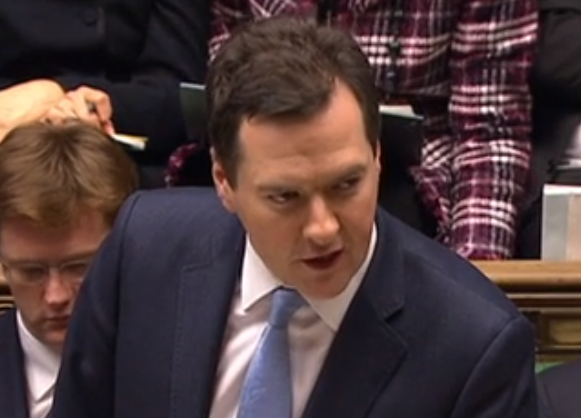Osborne Gives Data Centres A Green Bonus

The data centre industry gets green tax relief in George Osborne’s Autumn Statement
The Chancellor George Osborne has granted a concession to Britain’s data centre industry by allowing it to step outside other green taxes and form its own agreement to reduce emissions, while still remaining competitive against the industry in other nations.
The climate change agreement (CCA) will reduce taxes on the sector, in exchange for meeting agree efficiency targets. The idea is that high taxes would have made it harder for Britain’s data centres to compete against foreign rivals. The British tech industry body, techUK, welcomed the decision, having fought for a CCA for the industry for some time.
 Data centres want tax love
Data centres want tax love
“We are delighted that the Chancellor has recognised the importance of technology with the introduction of a climate change agreement (CCA) for data centres,” said Emma Fryer, associate director of climate change programmes at techUK. “This comes after our sustained campaign to ask government to apply a more intelligent approach to improving energy efficiency without penalising growth in this important sector.”
Climate Change Agreements are designed for industry sectors, such as manufacturing, which use large amounts of energy and are subject to competition from abroad. Applying taxes would make them uncompetitive, Fryer has argued, and have no impact on emissions. Instead of making British data centres more efficient, the higher costs would drive business abroad where it would probably be equally inefficient.
Under the CCA, the sector agrees efficiency targets, at levels where the cost won’t make the businesses uncompetitive. There are around 50 CCAs in operation, but the data centre industry’s is the first CCA in a sector which does not manufacture physical objects, techUK pointed out today. The argument took a long time, even though to techUK it has been obvious that data centres face even greater competition since “data is the most mobile commodity on earth”.
More attractive location
In answer to fears that the CCA might be a soft option compared to green taxes, techUK’s statement claims that the targets are more beneficial to the environment: “These targets are sector-specific so they can be focused exactly where they can deliver the most benefit,” said techUK, adding that CCAs have delivered greater energy savings than conventional policy measures.
“Without a CCA we would have seen the UK become an increasingly unattractive location to operate data centres,” said Fryer. “The UK would have lost investment, expertise and capability to other countries at significant economic cost.
The CCA will also drive cloud computing, said Fryer: “A climate change agreement will encourage the right behaviour among data centre operators and drive the market away from a distributed IT model that is less energy efficient towards one in which computing activity is consolidated into efficient, purpose-built facilities. This CCA supports the whole migration to Cloud-based computing. By creating much needed stability and predictability it will also enable data centres and associated businesses to plan their long term investment and growth strategies.”
Data centres are not just fancy sheds full of computing equipment, she said. They enable and power service economies in the way that heavy industry used to power manufacturing economies; they are the agents of growth for the knowledge economy. This is because a single data centre supports multiple layers of economic activity.
Others have raised questions about the long-term benefit of entering a new relationship with government. “I know that some operators find the CRC and Climate Change Levy costs to be a substantial part of their operating margin but we need to consider the downsides as well,” Liam Newcombe of data centre energy efficiency firm Romonet told TechWeekEurope earlier in techUK’s campaign. “If a CCA is granted then data centres will become recognised by government as a sector which will then be measured and reported on. ”
Public sector IT isn’t all bad! Try our quiz!
 Data centres want tax love
Data centres want tax love